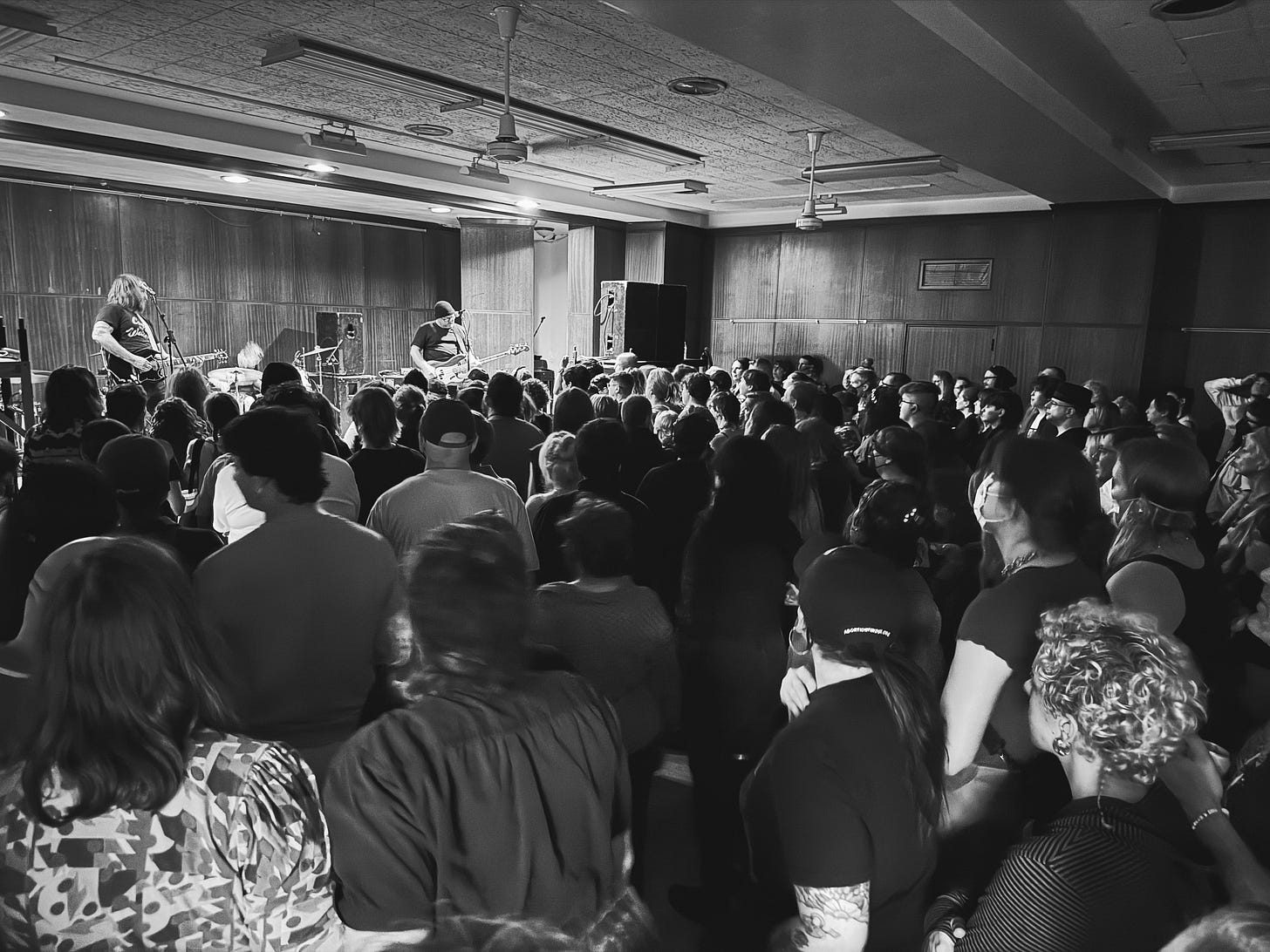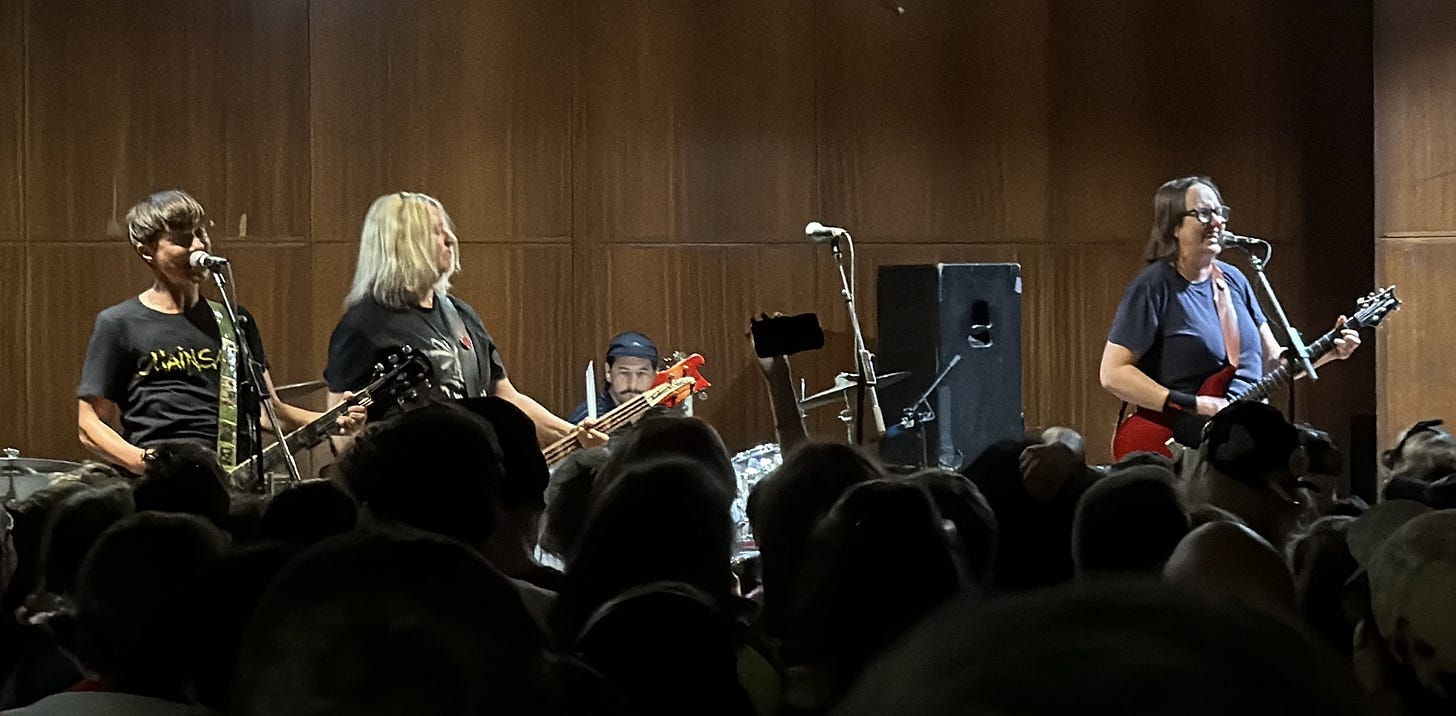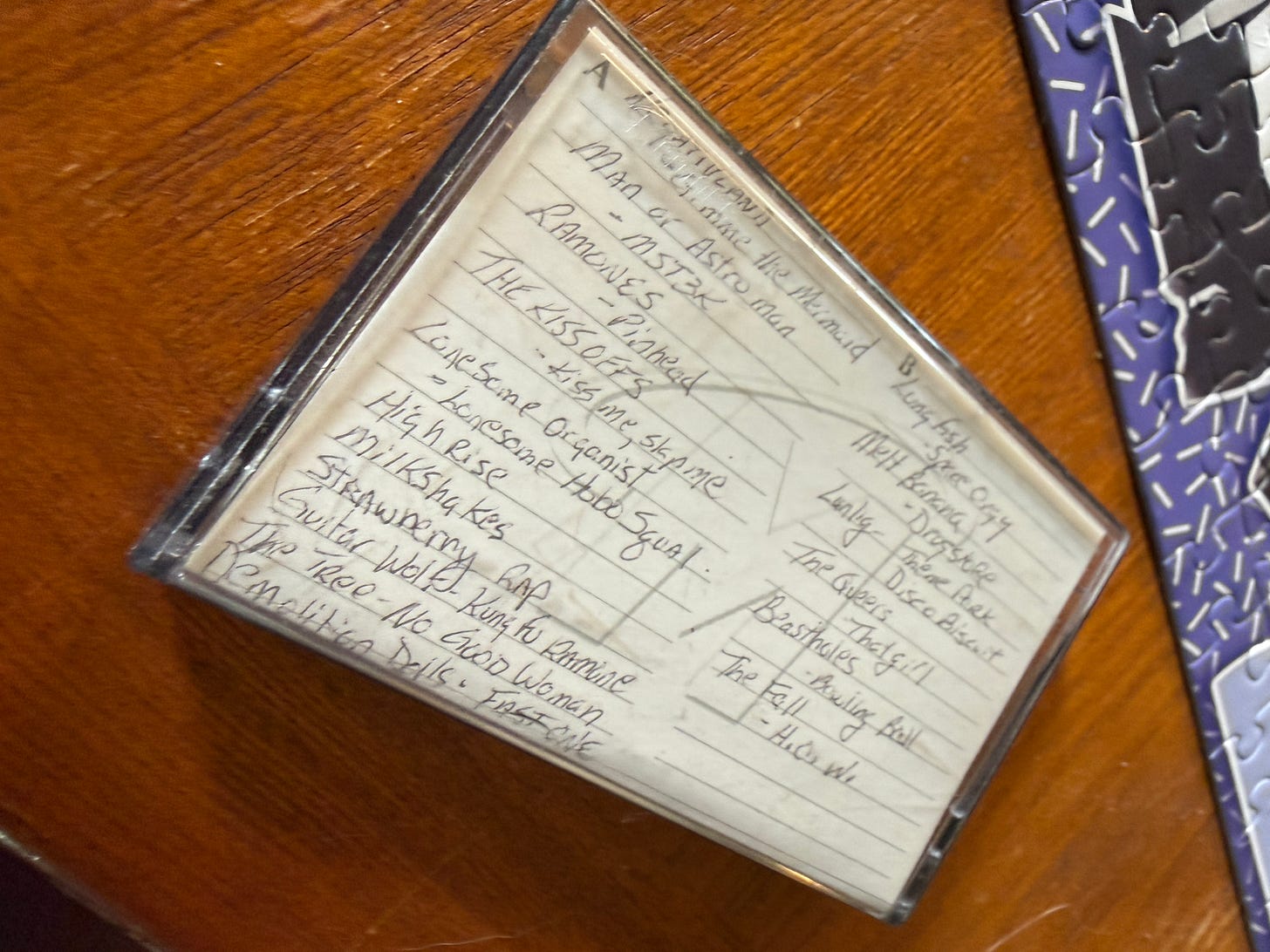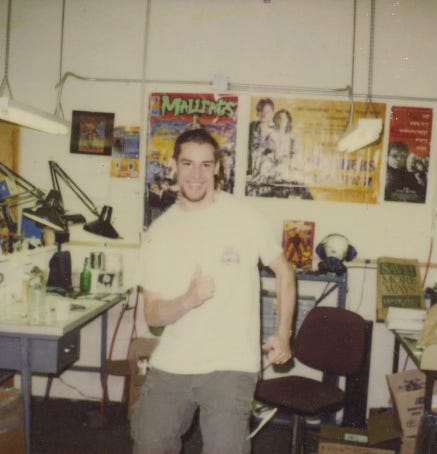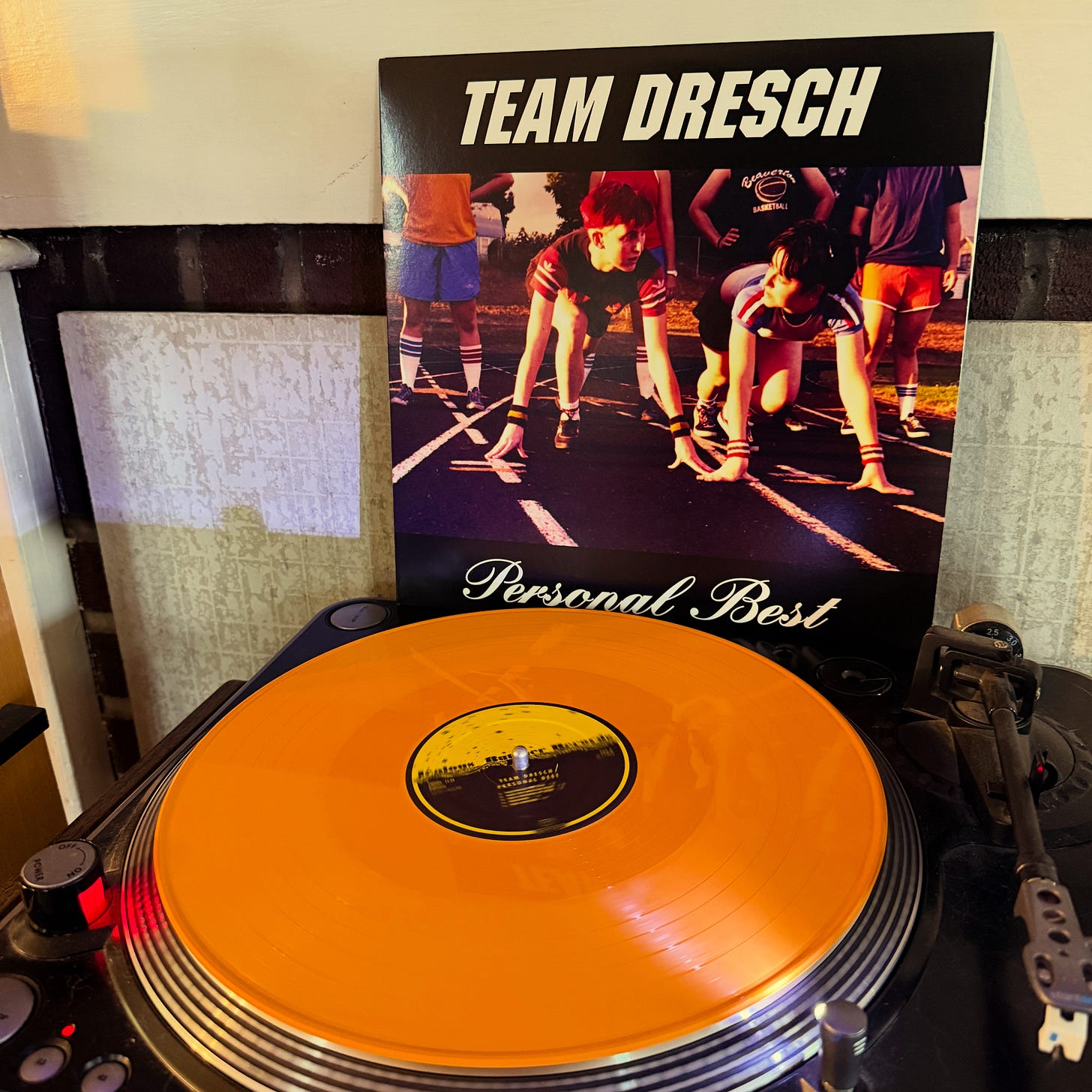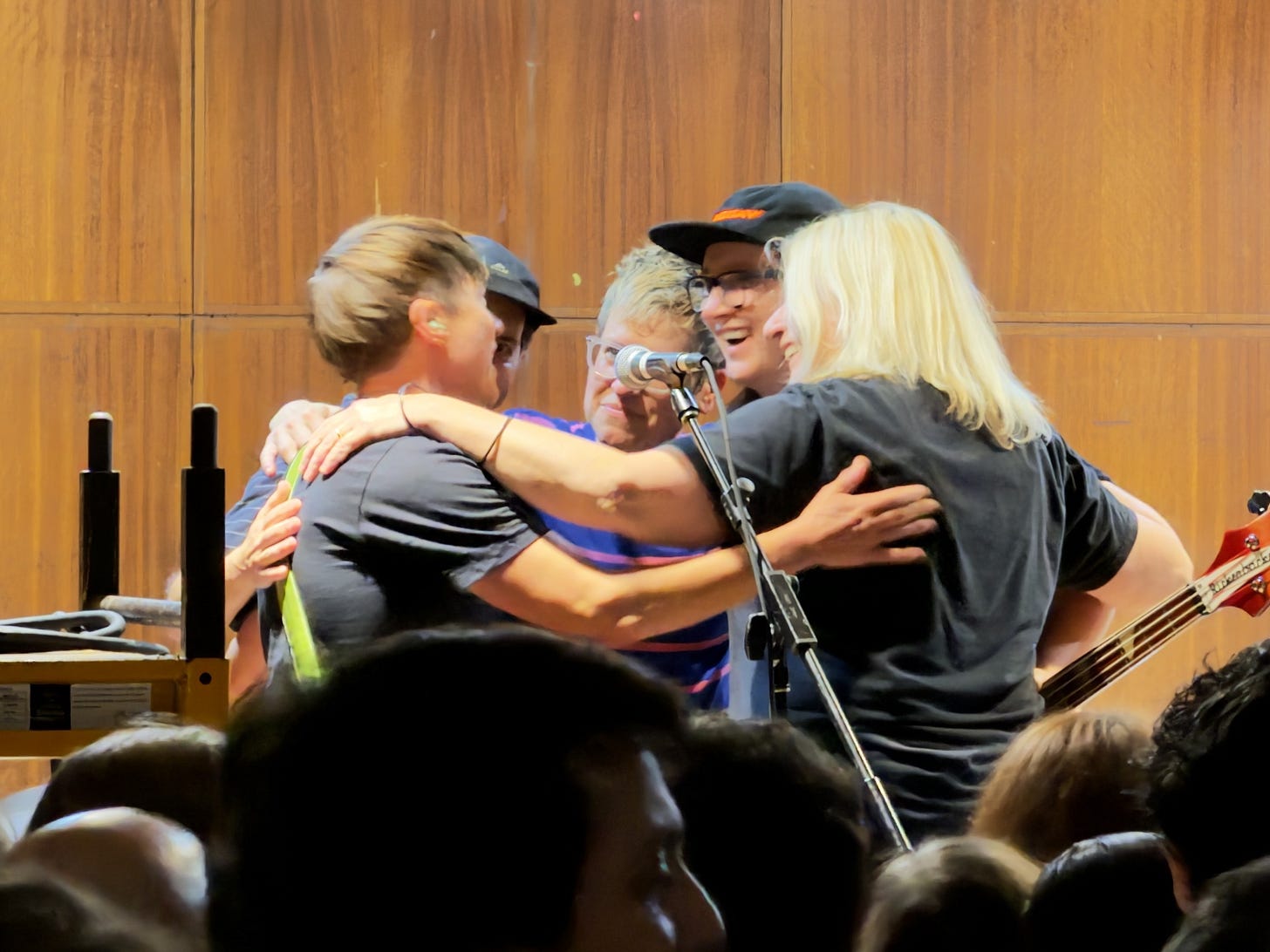Team Dresch and the Queercore Revolution That Still Hits Hard
A Sound Still Desperately Needed in Today's Climate
Discovering new music in the mid-’90s wasn’t something that happened without substantial effort. You hunted. You stalked sound the way crate-diggers stalk obscure vinyl—through static, mixtapes, and chance.
For me, the chase often started with WPRB Princeton, the college radio station that served as a beacon for misfits and music nerds across New Jersey. I still tune in today, though these days, I use Shazam to identify songs. Back then, you had to listen hard. DJs spoke in soft, mumbled tones, reciting lists of bands with the enthusiasm of a philosophy major on too little sleep. If you were lucky, you caught a name or two before the next wall of distortion hit.
So I started taping entire shows. Working at my dad’s model shop, I’d hit record on a cheap cassette deck and let it run. Later, I’d sit down, rewind, and scribble whatever I could decipher. Then came the pilgrimage—tracking down those mysterious bands at places like Princeton Record Exchange, a shrine for music obsessives that somehow still stands today.
One of those tapes led me to Team Dresch, a discovery that would hit me as hard as the first time I heard Nirvana’s Bleach.
Back then, the internet was a rumor, a place you visited through dial-up prayers. If you misheard a band name, good luck finding them. I probably typed “Team Dress” into some primitive search engine, but somehow I ended up exactly where I was meant to: Team Dresch.
Their 1995 debut Personal Best was a revelation—raw, emotional, defiant. It was punk stripped to the nerve. I wore that CD out, and thirty years later, it still holds power. So when I heard the band was doing a brief East Coast reunion tour—three shows total, one in Philly—I didn’t hesitate. I bought a ticket the moment they went on sale.
Team Dresch, for the uninitiated, was a thunderclap in the mid-’90s punk underground. Formed in Olympia and Portland, the band—Jody Bleyle, Donna Dresch, Kaia Wilson, Marcéo Martinez, and later Melissa York—helped define the queercore movement. At a time when “alternative” music was being swallowed by MTV, Team Dresch doubled down on the DIY ethic and gave voice to queer identity in a scene that wasn’t always ready for it.
Their two albums, Personal Best (1995) and Captain My Captain (1996), weren’t just punk—they were protest. Songs like “Fagetarian and Dyke” and “Freewheel” tore through the hypocrisy of mainstream culture and the complacency of the alternative scene. Their music was fast, loud, and unapologetically political.
I’ve never been queer, just like I’ve never been Black—but that never stopped me from worshiping Public Enemy’s Fear of a Black Planet. What pulls me in is the fight. The “fuck you” to the system. The refusal to make art that pleases the gatekeepers. Team Dresch had that energy in every note.
Their Philly show took place at the First Unitarian Church, one of those legendary punk basements where the walls sweat and the crowd feels like it’s levitating. The openers—Noun and Vitapup—set the tone.
Noun, featuring Marissa Paternoster of Screaming Females and Ashley Arnwine, sounded like an avalanche. Two musicians who made enough noise for five. Vitapup, a resurrected ’90s three-piece, brought a gritty Nirvana edge that felt like finding a cassette in your glovebox from 1994 that still plays perfectly.
And then came Team Dresch. The moment they hit the stage, it was 1995 again. No irony, no nostalgia trip—just pure catharsis. I knew every lyric, shouted every chorus. The crowd was a mix of gray-haired punks and kids who weren’t even born when Captain My Captain came out. The connection was electric.
What struck me most was how current their message still feels. Thirty years later, the world’s still wrestling with the same issues—gender, identity, visibility, control. The same forces they fought back then are louder than ever. But so is the resistance.
I’ve always been drawn to art that punches upward. The riot grrrl scene—Bikini Kill, Sleater-Kinney, Bratmobile—did that with ferocity, and Team Dresch were their righteous cousins. I never got to see those bands live in their prime, so catching Team Dresch now felt like a gift, a reminder that the fire never really goes out.
The night before, I’d seen John Carpenter perform in New York. Great show, but the vibe was cinematic and distant. Team Dresch, though? They hit the heart. Loud, sweaty, imperfect, glorious. And the drive home from Philly was a breeze compared to the chaos of the NYC commute.
As I left the church basement, ears ringing, shirt soaked, I realized something: punk doesn’t age—it mutates. And the bands that meant something in the ’90s? They still matter, maybe more than ever.
Take it easy,
James Ippoliti


